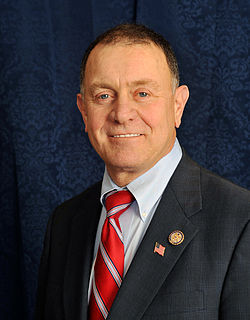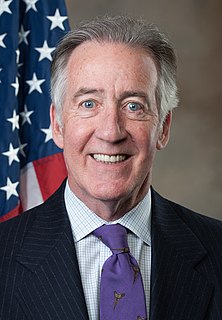A Quote by Richard L. Hanna
I do think there is room at the very top for marginal tax changes.
Related Quotes
If top marginal income tax rates are set too high, they discourage productive economic activity. In the limit, a top marginal income tax rate of 100 percent would mean that taxpayers would gain nothing from working harder or investing more. In contrast, a higher top marginal rate on consumption would actually encourage savings and investment. A top marginal consumption tax rate of 100 percent would simply mean that if a wealthy family spent an extra dollar, it would also owe an additional dollar of tax.
When you consider that a steelworker who's making $40,000 a year has virtually the same tax burden as someone who's making $400,000 a year, you see that there are inequities. This administration has used the tax code to accelerate wealth to the top. Most of the tax breaks have gone to people in the top bracket.
We need to lower tax rates for everybody, starting with the top corporate tax rate. We need to simplify the tax code. The ultimate answer, in my opinion, is the fair tax, which is a fair tax for everybody, because as long as we still have this messed-up tax code, the politicians are going to use it to reward winners and losers.


































